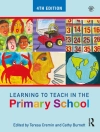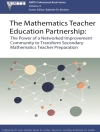Against the claims of increasing sexualisation of culture, one truism is constantly rehearsed – that women have little taste for pornography. In One for the Girls!, a new basis for understanding women’s pleasures in sexually explicit materials is offered focusing on the production and consumption of For Women magazine. This thought-provoking book argues that theories of harm, women’s subordination and accounts of effects or transgressive potentials have deflected attention away from the lived experiences and practices of pornography; drawing on rich empirical detail, One for the Girls!, brings them sharply into view. The book examines the ways in which pornography has become a favoured repository of social fears and debunks the myth of the ‘evil pornographer’ producing images of objectified women for troubled male viewers. By focusing on an individual publication, this book illuminates the ways in which pornography is a social product and subject to a range of institutional practices which influence its styles and presentations. Significantly this book moves beyond the usual rehearsal of claims about readers’ vulnerability to ideologies hidden in the text and uses readers’ designations of ‘sexy’ and ‘pleasureable’ to underpin an alternative theorisation of pornography. Exploring readers’ responses to nude male pinups, explicit stories and sexy articles, the book traces the patterns of response hidden behind the title ‘porn reader’.
Giới thiệu về tác giả
Clarissa Smith is Senior Lecturer in Media & Cultural Studies at the University of Sunderland. Her research and publications focus on the expanding sexual sphere for heterosexual women: its institutional practices, representational strategies, uses and meanings. She also researches the histories and formations of pornography and the ways in which representations of sex have entered mainstream media. Her research employs audience research in order to understand the particular pleasures of sexual representations and the ways in which these cultural products are embedded in the practices of everyday life.












